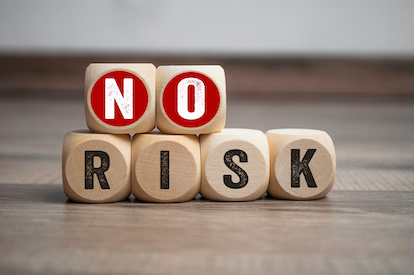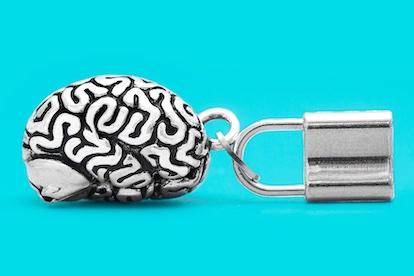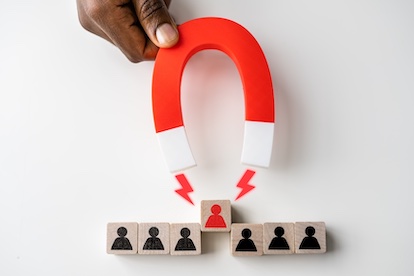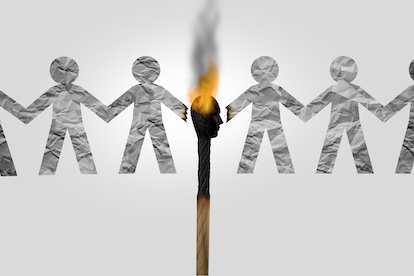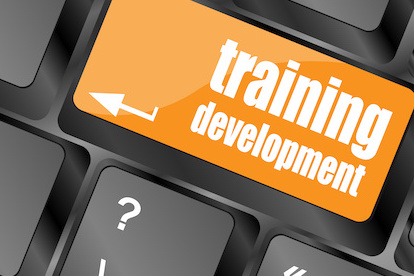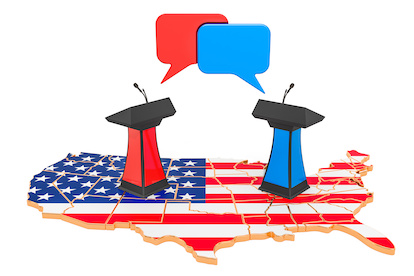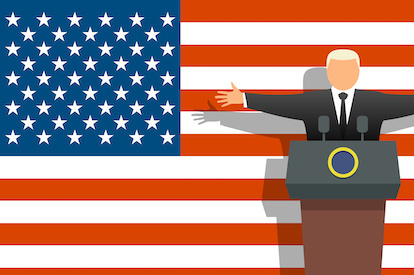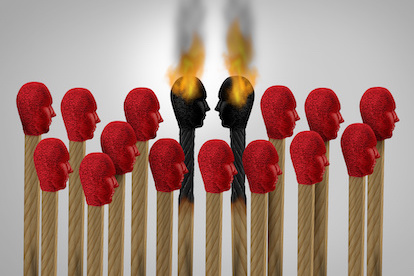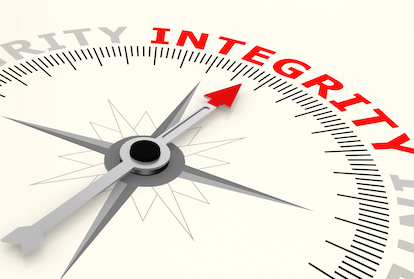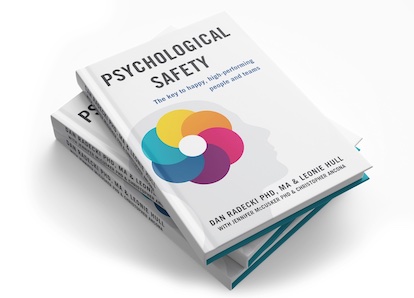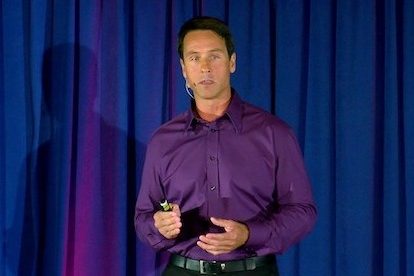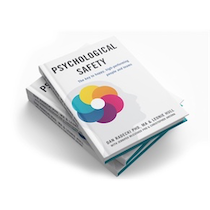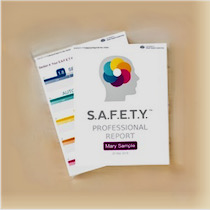Blog
How to Help Clients Overcome Blocks: Focus on the Brain
What if your client’s biggest block isn’t mindset—but their brain’s need for safety? Discover how neuroscience can help you coach with greater precision, unlock emotional patterns, and finally move stuck clients forward. This article reveals a powerful brain-based approach that transforms the way you coach.
Blog
How Can I Navigate Workplace Uncertainty & Change?
As organizations grapple with an era of relentless change and unpredictability, one thing is becoming clear: the most successful organizations will be those that master human psychology and create environments where people are able to contribute, innovate, and grow. With practical strategies and neuroscience-backed insights, this article offers a clear path for leaders looking to build a culture of psychological safety and long-term success.
Blog
The Stress of Uncertainty: Health Impacts of Workplace Change
Uncertain times at work can take a toll on body and mind—linked to stress, disengagement, and even diabetes. This article uncovers the neuroscience of uncertainty’s impact and offers leaders practical strategies to foster psychological safety, reduce stress, and empower their teams.
Blog
The Power of Why: Neuroscience as the Impetus for Change
Dive into the neuroscience behind lasting change in this article. Discover why superficial fixes fail and gain practical tools to address workplace challenges at their root, empowering teams to build psychological safety, wellness & resilience.
Blog, Videos
How One COO Brought Psych Safety In-House
When faced with massive organizational changes and challenges with team collaboration, COO Reg Bernard knew something had to be done. That’s when he discovered brain-based Psychological Safety. Watch the interview to learn how he successfully implement this strategy in-house, and the tangible results the company saw.
Blog
The Neuroscience of Depression
Depression affects over 280 million people worldwide, yet it’s often misunderstood. Our latest article from Dan Radecki dives into the neuroscience behind depression and covers some proactive strategies to build a more resilient brain.
Blog
The Dark Side of Fairness: How Trying to Be Equal Divides Us
The pursuit of fairness has become a central tenet of social discourse and policy-making. But in this article, Christopher Ancona argues that the current push for “fairness” in society has charted a path to unfairness that undermines psychological safety, will unavoidably create division, and could even lead to civil war. Read more in the article.
Blog
A Brain-based Approach: The Future of Leadership
Discover how neuroscience is revolutionizing leadership by applying brain-based strategies to enhance decision-making, emotional intelligence, and organizational success.
Blog
Sleep Deprivation and its Impact on the Brain
Our latest article from Chief Scientific Officer and co-founder Dan Radecki explores how sleep deprivation impacts our psychological safety. Learn the science behind sleep’s role in mental well-being, some interesting research and strategies for improving your sleep.
Blog
Managing the Psychological Safety Need for Esteem
Learn effective strategies for managing employees with a high need for esteem in the corporate world. Maximize their potential and boost team performance by understanding the psychological safety need for Esteem.
Blog
How To Deal With Emotional Triggers At Work: 4 Effective Strategies
Learn how to effectively manage emotional triggers at work with four proven strategies to enhance your psychological safety, backed by neuroscience.
Blog, Publications
Case Study: Navigating Organizational Change with Psychological Safety
Facing a merger and the challenges of the pandemic, Spec Furniture knew maintaining a strong team was crucial. Dive into the full story to learn how their strategic approach led to improved retention, better collaboration, and a record-breaking performance year.
Blog
The Imperative of Psychological Safety for Coaches, Trainers and People & Culture Professionals
Learn why psychological safety is crucial for corporate success, with insights for executive coaches, trainers, and consultants on driving innovation and productivity in client organizations.
Blog
10 Brain Facts Every Leader Should Know
With decades of management experience and working, talking, and reading publications from neuroscientists, social psychologists, and others, here are 10 key things confirmed by science that can improve your management skills.
Blog
10 Things To Avoid When Implementing Psychological Safety
Implementing psychological safety in the workplace is crucial for fostering a culture of innovation and engagement. In this article, we unpack ten potential pitfalls to avoid, ensuring that your path is built on a solid foundation, strategically applied, and sustainable for the long term.
Blog
Is Team Psychological Safety the Leader’s Responsibility?
In the realm of building psychologically safe teams, the focus often lies on group dynamics, with the leader bearing the responsibility. But is this approach fair, and more importantly, is this approach sustainable considering how our brain works, and how the psychological safety needs of team members can be so diverse and intangible?
Blog
Unlocking the Value of Diversity & Inclusion in the Workplace
Recent data reveals a concerning trend: many renowned companies like American Airlines, Nike, Twitter, Glassdoor, Wells Fargo, and Amazon have downsized their D&I departments. But why is this happening, and more importantly, how can organizations maximize the value of their D&I investments?
Blog
2024 Predictions – Psychological Safety, ISO Psychosocial Risk and more…
As we reflect on 2023, a few trends emerged from our clients and collaborators that will likely continue to grow as areas of focus in 2024. Psychological safety clearly stands out as a phenomenon that teams and organizations are trying to tackle in gaining a deeper understanding of what it truly is, its impact on health, wellness and performance – how to manage it.
Blog
Reflections on the Current Psychological Safety Landscape
Psychological safety is a buzz phrase these days largely as a result of Google’s research that revealed Psychological Safety as a key factor of their high performing teams. However, most Psychological Safety training is missing the mark with a focus on experiential or anecdotal information to build awareness in the hope that this will translate to building Team Psychological Safety. Unfortunately it is not that simple – to build and sustain Psychological Safety requires a systemic approach, one that builds awareness, skills, commitment, measurement and accountability across 4 levels: Self, Relationship, Team and Culture.
Blog
Start-Up Survival Guide: Why Psychological Safety is a Game Changer
For start-ups in particular, the only way you can make good decisions is to have all the brain power in the room cooperating. The only way your team can feel comfortable taking risks that will lead to significant competitive advantages is if they feel safe in taking those risks. The only way to retain talent is to ensure that they work in an environment where they are respected. The only way to build resilience in your team is to make them a strong operating unit . Accomplishing all of those things requires psychological safety.
Blog
Psychological SAFETY in a world with artificial intelligence
We are already using Artificial Intelligence for all sorts of things but AI is not going to be there to manage your team through the big disruptions that are coming.
Blog
Taking a TRUE brain-based approach to team building
Creating a true brain-based team learning environment is very challenging. Many trainers claim to do “brain-based” teaching, but in the end, they are only leveraging the brain to sell their courses and keep clients paying them. They accomplish this by using old-school activities with an added feel-good factor.
Blog
S.A.F.E.T.Y.™ foundations of US Surgeon General’s new workplace mental health & well-being framework
The new Workplace Mental Health & Well-Being Framework put forth by the Surgeon General’s Office stresses the importance of creating a psychologically safe space, where open collaboration and vulnerability can create a true sense of belonging where employees feel motivated and as though they are contributing in a meaningful manner. Interestingly, this framework is rooted in many of our S.A.F.E.T.Y.™ domains, which makes sense when you consider these domains to be the driving needs behind individual psychological safety.
Blog
Spotting Psychological Safety Triggers: ‘Autonomy’
The neuroscience and social psychology that underlies why people do what they do is both well-known and fascinating. But how can you spot someone with particular S.A.F.E.T.Y.™ triggers? This post of a 5 part series looks at the S.A.F.E.T.Y.™ domain “Autonomy.”
Blog
Spotting Psychological Safety Triggers: ‘Fairness’
The neuroscience and social psychology that underlies why people do what they do is both well-known and fascinating. But how can you spot someone with particular S.A.F.E.T.Y.™ triggers? This second post of a 5 part series looks at the S.A.F.E.T.Y.™ domain “Fairness.”
Blog
Spotting Psychological Safety Triggers: ‘Security’
The neuroscience and social psychology that underlies why people do what they do is both well-known and fascinating. But how can you spot someone with particular S.A.F.E.T.Y.™ triggers? This first post of a 5 part series looks at the S.A.F.E.T.Y.™ domain “Security”.
Blog
Why team psychological safety is so important in today’s workforce
Today’s workforce is different than previous workforces. Data coming out of the Great Resignation phenomenon has revealed that employers who are meeting their team’s psychological needs are faring much better at retaining their staff.
Blog
I was wrong, the golden rule is just fine as it is
Reader feedback made it evident that I was only touching on the Golden Rule superficially. See, the Golden Rule actually inherently takes psychological safety into consideration if it is taken at a deeper level rather than literally word-for-word.
Blog
The Golden Rule is wrong! (managers who use it destroy their team)
There is an old saying “Treat people how you want to be treated”, but with what we know through Neuroscience research, this advice needs an upgrade.
Blog
The brain’s need for Security
One of the most common workplace situations, that is often dismissed as “a conflict of personality” between team members, is actually their conflicting need for Security.
Blog
How to unleash your employees talent and passions
The great resignation is about a search for freedom through work-life alignment, people are looking for purpose in their work and connection with the people they work with. The companies that recognize and adjust to this reality will have a greatest advantage when recruiting and retaining the best talent.
Blog
Leveraging the Great Resignation to build Competitive Advantage
The Great Resignation is an opportunity to build a competitive advantage, if you know how.
Blog
When psychological safety needs sabotage diversity
Given the substantial research demonstrating the benefits of embracing diversity it is puzzling that the pandemic has fueled such an ‘us vs them’ polarization, that is until it is viewed through the lens of neuroscience.
Blog
The Psychological Safety vs Resilience Challenge
Using the findings from neuroscience, social psychology, evolutionary psychology, and interpersonal neurobiology, we can make it easier to evaluate new learning tools and methodologies.
Blog
Building psychological safety
Wherever you find yourself in life right now psychological safety is likely playing a significant role in determining your experience.
Blog
Training in today’s world of technology
Using the findings from neuroscience, social psychology, evolutionary psychology, and interpersonal neurobiology, we can make it easier to evaluate new learning tools and methodologies.
Blog
Political Brain Wars
This analysis of speeches turned out quite interesting as all candidates appealed to multiple and different brain-based triggers yielding insights into the strategic layout of the campaign landscape.
Blog
How Trump’s acceptance speech pushed your brain’s buttons
A lot can be gleaned from this speech and we decided to apply a neuroscience model to the speech and see if we can understand what approach and emotional triggers the candidate is using to motivate, persuade, and inspire voters.
Blog
Brain-based Coaching: The S.A.F.E.T.Y.™ Approach
How do we, as coaches, identify something that we want to keep in mind and keep it there? Further, how do we help other people develop that skill?
Blog
Workplace dysfunction: A neuroscience based perspective
Without a boss with tools and training to manage the situation, there was no way out except for an all-out war or one of us leaving; neither were good results for the company.
Blog
The Safety Dance!
Turns out that the best predictor of a high performing team is whether or not there is a sense of psychological safety within the group.
Blog
Is corporate bullying inevitable?
Thanks to all the advantages that high relative position affords us, people do everything they can to ‘game’ any system that promises relative advantage compared to others.
Blog
Is being positive stupid?
Positive people tend to live longer and have happier lives… even if they are totally self-deceived some of the time.
Blog
Rediscovering integrity
Carl Sagan once said we (humans) have a talent for deceiving ourselves. The more science learns how the human brain works, the more we discover the unnerving depth of truth in that statement.
Blog
Napoleon was a Neuroscientist
Napoleon’s success as a wartime tactician could be attributed to the fact that he unknowingly created an optimal brain state for having moments of insight.
































